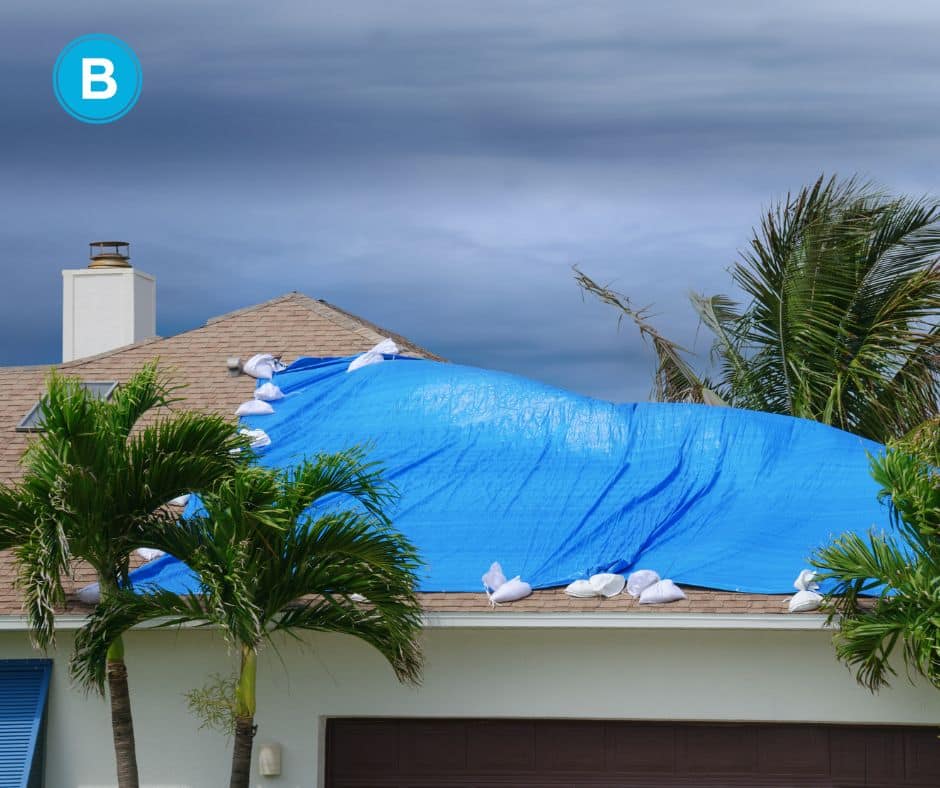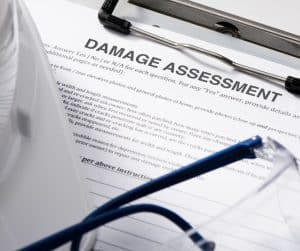
Hurricane season 2024 has arrived! Here in Central Florida, tropical cyclones are a way of life, and navigating hurricanes (and hurricane insurance claims) is a right of passage. Unfortunately, regarding insurance, hurricanes can be a complicated topic.
The National Oceanic and Atmospheric Administration (NOAA) predicts higher-than-usual hurricane occurrences through November. They say we have an 85% chance of an above-average season, forecasting at least 4 major hurricanes. Those numbers are intimidating, to say the least. That’s why the team at Brooks Law Group is exploring hurricane insurance claims in detail, and providing pointers for you as you prepare for this year’s storm season.
Does Florida get that many hurricanes?
Florida has experienced numerous hurricanes, tropical storms, and disturbances in the last 20 years. 9 of these were major hurricanes. That’s a significant number of catastrophic storms for a single state! A few of the most famous storms to hit our coastline include:
- Hurricane Charley (Category 4) in August 2004
- Hurricane Ivan (Category 3) in September 2004
- Hurricane Jeanne (Category 3) in September 2004
- Hurricane Irma (Category 4) in September 2017
- Hurricane Michael (Category 5) in October 2018
These hurricanes caused extensive damage to homes, businesses, and public infrastructure, leaving thousands of people without power, water, or shelter for days, or even weeks, after each storm. How much damage did they cause financially?
Since 1980, the United States has seen over $2.6 trillion in damages from weather disasters with millions filed as hurricane insurance claims. Florida is a leader in that total. For this reason, insurance companies recoil at covering individuals living in our state, especially along the coastline where storms hit hardest.
What kind of damages do hurricane insurance claims cover?
Hurricanes cause two major types of damage:
Wind Damage
Wind damage can impact roofing materials, vehicles, trees, fencing, and more. The high winds that come with Category 3, 4, and 5 storms leave behind devastation in and around Tampa Bay whenever a hurricane makes landfall.
Water Damage
Even homeowners who live inland fear water damage from hurricanes. With our numerous lakes in Central Florida, storm surge impacts thousands of victims during major tropical storms. What’s more, our high water table means flooding is a huge concern when faced with heavy rain from hurricanes.
Homeowners insurance does cover some damage related to hurricanes, but certainly not all. If you pay for a hurricane-specific policy or add flood insurance onto your existing plan, you’re more likely to have your hurricane insurance claim accepted.
How do I file an insurance claim after a hurricane?

Do you know where to start with filing a hurricane insurance claim?
While providers vary in their specific policies, there are commonalities shared across them all. If you’ve suffered damages after a major weather event like a hurricane, you should always:
- Photograph everything. Document all damage in detail, with clear, detailed photos from multiple angles.
- Take an inventory. If you already have a home inventory (good for you!) now is the time to take stock of what’s damaged or missing. Make notes with descriptions of the items, when you bought them, and the estimated values. If you don’t have an inventory, list missing items to the best of your ability from memory. Include the same aforementioned details.
- If you have any receipts or records related to your home or property, include these! They can often help validate the condition of your property before the storm. For example, if you had a roof replacement done a year before the hurricane, the insurance company can’t claim that your roof was “weak” and susceptible to damage!
After you’ve gathered these items, it’s time to take a look at your policy and ask yourself these questions:
“Do I have any hurricane-specific policies or flood insurance additions?”
“What is my deductible?”
“Are there exclusions listed in my homeowner’s insurance?”
If you don’t know the answers to these questions, or if you don’t understand the fine print in your policy, it’s time to call in professional legal help.
A lawyer can help you with your hurricane insurance claim.
Experienced lawyers understand the methods of insurance companies, and are better able to protect you from their loopholes. Reach out for legal counsel before you start your claim, for best results. An attorney provides insight and guidance about policy details, your state laws regarding insurance, and more.
As your claim moves through the process, your attorney advocates for you, negotiating with insurance adjusters and representatives to fight for the compensation you deserve.
What happens if my claim is denied?
If your hurricane insurance claim is denied, your attorney offers support during the litigation process, giving you peace of mind that your best interests are being fought for. This is especially important if your storm damage was severe enough to displace you and your family.
Brooks Law Group stands beside Floridians affected by hurricane damage, fighting for the help they paid for and deserve. When insurance companies refuse to pay, we seek out the compensation you need to rebuild and recover. Our contingency fee means you don’t worry about payment unless we win your case. You can count on our team to help after you’re impacted by a major storm.
When we show up, the sun comes out after the storm and you feel hope again. When hurricanes hit, Tampa Bay victims Look to Brooks!













